Online QT calculator for wide QRS (LBBB, RBBB, etc.)
Dr. Smith's ECG Blog
JANUARY 7, 2025
(This was created by Arron Pearce ( [link] ) Online QT calculator for wide QRS (LBBB, RBBB, etc.
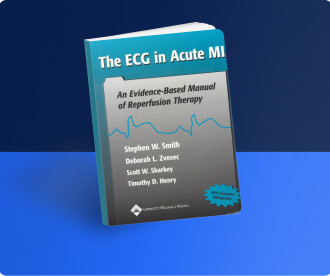
Dr. Smith's ECG Blog
JANUARY 7, 2025
(This was created by Arron Pearce ( [link] ) Online QT calculator for wide QRS (LBBB, RBBB, etc.
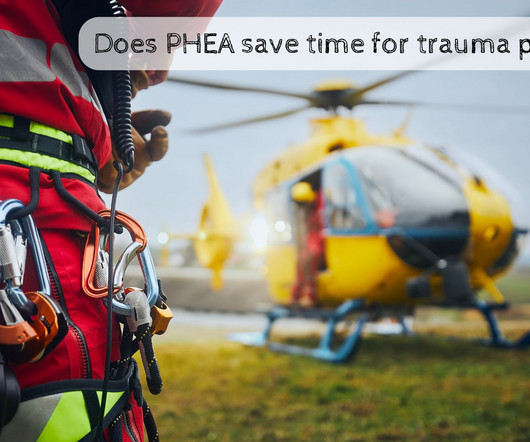
St. Emlyn
JANUARY 6, 2025
St.Emlyn's - Emergency Medicine #FOAMed How does pre-hospital emergency anaesthesia (PHEA) delivered by Helicopter Emergency Medical Services (HEMS) impacts trauma care timelines compared to emergency department RSI (EDRSI). This retrospective study explores time efficiency, injury severity, and patient outcomes, highlighting the role of HEMS in delivering critical care to severely injured patients in remote locations.
This site is protected by reCAPTCHA and the Google Privacy Policy and Terms of Service apply.

Science Based Medicine
JANUARY 3, 2025
Once again, sheltered laptop-class doctors are treating children's health as a parlor game to advance their political objectives. The post To Spread Mistrust, Dr. Martin Kulldorff Asks RFK Jr. to do an Unethical, Impossible RCT of Vaccines He Knows Are Safe & Effective first appeared on Science-Based Medicine.

Sensible Medicine
JANUARY 3, 2025
Doctors of a certain age tend to fetishize the physical exam. I think this is because learning the physical exam is an important part of the socialization of the doctor. It is also a skill that doesn’t really wither with time. Though with every passing day I feel more and more like part of the old guard, I can only give the exam a tepid defense.
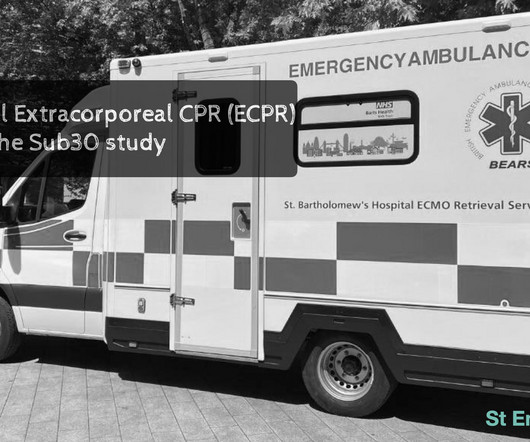
St. Emlyn
JANUARY 2, 2025
St.Emlyn's - Emergency Medicine #FOAMed This feasibility study described the delivery of ECMO CPR (ECPR) for the first time in the UK The post Pre Hospital Extracorporeal CPR (ECPR) in the UK: The Sub30 study appeared first on St.Emlyn's.
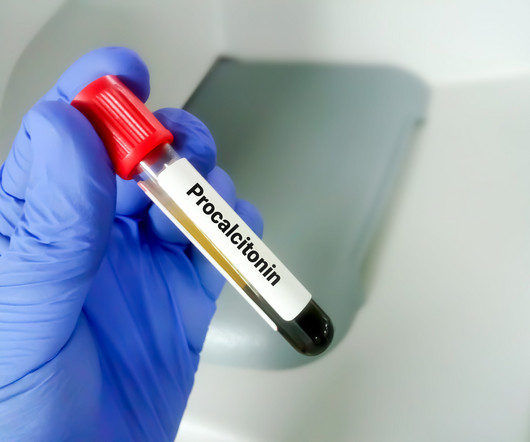
PulmCCM
JANUARY 2, 2025
Many randomized trials have tested the biomarker procalcitonin as a guide to de-escalate or stop antibiotic therapy in patients with known or suspected infection. A large proportion have concluded PCT is a safe and effective method to shorten antibiotic courses, including in patients with sepsis. But most such trials have been small, often single-center, and vulnerable to bias due to the unblinded nature of the intervention.
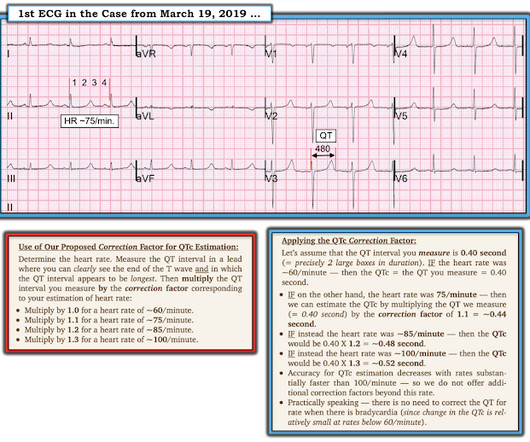
Dr. Smith's ECG Blog
JANUARY 2, 2025
By Smith with comments from our electrophysiologist, Rehan Karim. (And of course Ken's comments at the bottom) An elderly obese woman with cardiomyopathy, Left bundle branch block, and chronic hypercapnea presented hypoxic with altered mental status. She was intubated. Bedside cardiac ultrasound showed moderately decreased LV function. CT of the chest showed no pulmonary embolism but bibasilar infiltrates.
Emergency Care Today brings together the best content for emergency care practitioners from the widest variety of industry thought leaders.
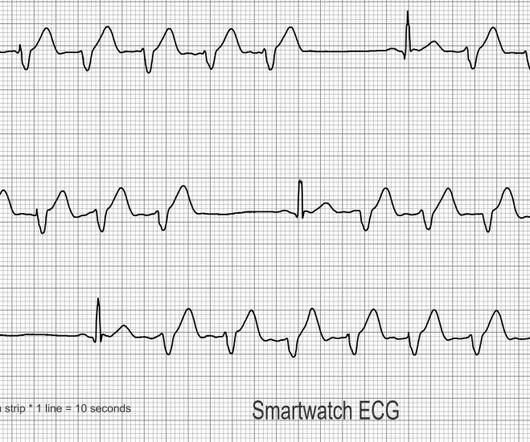
ECG Guru
JANUARY 3, 2025
Here we see a 30 s long strip of a 1-leadECG, recorded with a modern Smartwatch (Apple watch). The ECG has been graphically processed for better visualization. The paper speed is 25 mm/s as usual. The lead shown corresponds to ECG lead I of the limb leads.

EB Medicine
JANUARY 7, 2025
In this episode, Sam Ashoo, MD interviews Nicholas Stark, MD, MBA & Zaid Altawil, MD about the Emergency Medicine Innovation Collaborative 1. Discussion on EMIC - Overview of the collaborative - Background and formation during the pandemic in late 2021 2. Growth of EMIC - Expansion from three members to over 500 - Focus areas: Education, mentorship, opportunity 3.

Emergency Medicine Cases
JANUARY 7, 2025
Dr. Patricia Lee is an EM physician in Calgary, Alberta and an Assistant Professor at the University of Calgary in the Department of Emergency Medicine. She reached out to me after listening to Episode 200 How EM Experts Think Part 1 as a longtime supporter of EM Cases, to highlight the importance of recognizing challenges that female-identifying EM physicians may face before, during and after ED shifts.
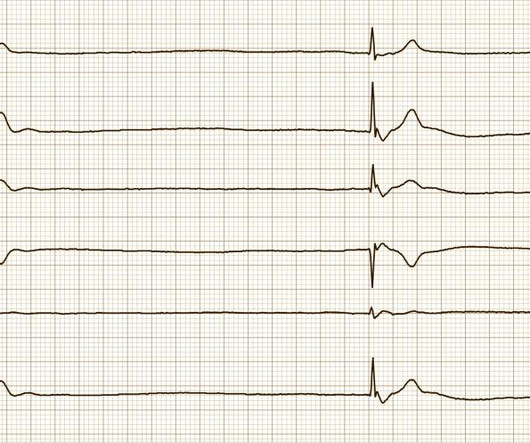
ECG Guru
JANUARY 3, 2025
This ECG is from a 65-year-old woman who had previously had no cardiac abnormalities but has now suffered several syncopes within 2 weeks. During the last syncope she suffered a fracture of the left femur.
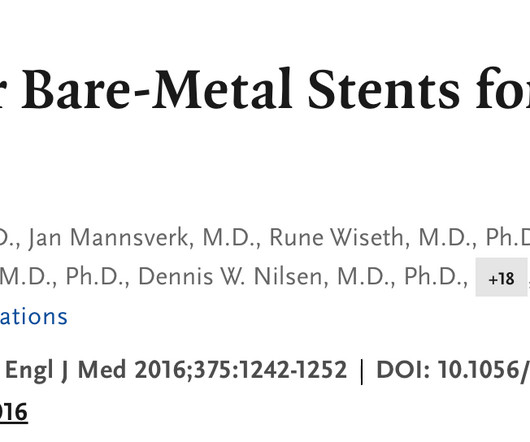
Sensible Medicine
JANUARY 6, 2025
When I was at Indiana back in the 1990s, we called an ICD by a company’s brand name. At IU, all ICDs were “PCDs” PCD was Medtronic’s brand name. I didn’t realize it at the time, but this was pro-level marketing. A similar thing has happened with coronary stents—at least in my neighborhood. Now it is Xience, a brand of drug-eluting stent (DES) from Abbott.

ACEP Now
JANUARY 4, 2025
In recent years, emergency medicine, once the bastion of quick decision making, clinical acumen, and patient-centered care, has been quietly succumbing to a different forcethe slow but steady erosion of critical thinking. The culprit is the increasing reliance on protocolization and the diminishing autonomy of emergency physicians. This shift, intended to standardize care and mitigate error, is paradoxically undermining the very heart of medicinethe doctors ability to think critically, adapt to
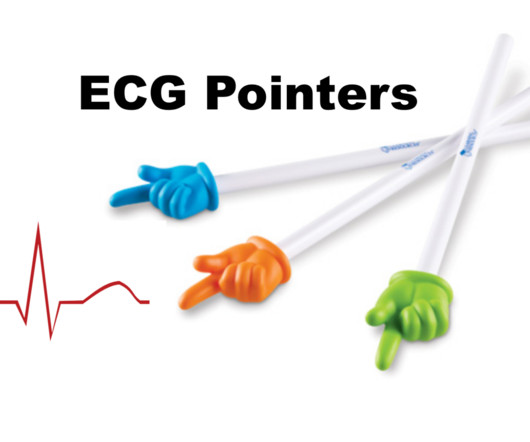
EMDocs
JANUARY 8, 2025
Authors: Lloyd Tannenbaum, MD (EM Attending Physician, Geisinger Wyoming Valley, PA); Mai Saber, DO (EM Attending Physician, Hackensack University Medical Center, NJ); Rachel Bridwell, MD (EM Attending Physician, Charlotte, NC) // Reviewer: Brit Long, MD (@long_brit) Hello and welcome back to ECG Pointers, a series designed to make you more confident in your ECG interpretations.
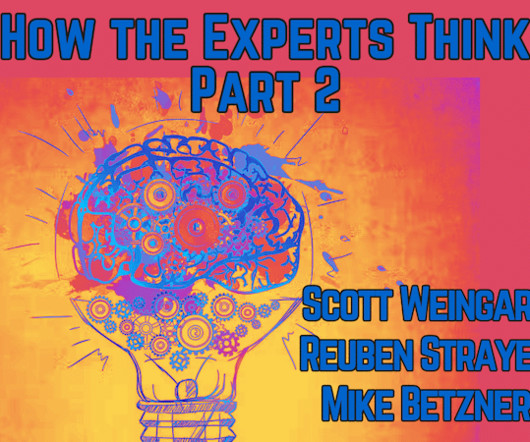
Emergency Medicine Cases
JANUARY 7, 2025
In this Part 2 of our 2-part podcast series on How EM Experts Think with Dr. Reuben Strayer, Dr. Mike Betzner and Dr. Scott Weingart we dive deep into the nuances of practicing smarter, faster, and better in the ED. We answer questions like: How should we employ hypothetico-deductive reasoning in our daily practice of Emergency Medicine? How can we best streamline thorough data gathering for each case so that we don't miss key data points?

Life in the Fast Lane
JANUARY 8, 2025
Chris Nickson Come join the 2025 Clinician Educator Incubator! Expressions of interest are now open for the sixth Clinician Educator Incubator - EOIs close Feb 10th 2025.
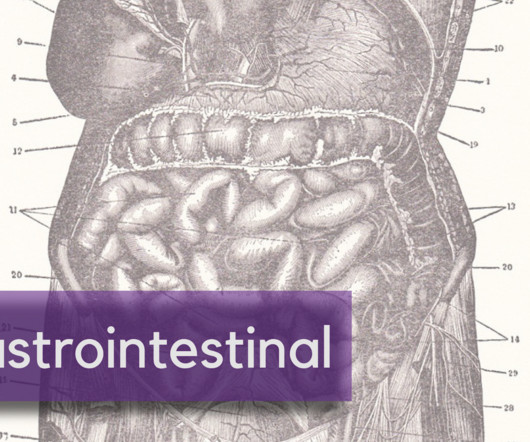
Northwestern EM Blog
JANUARY 7, 2025
Written by: Ashley Segobiano, MD (NUEM 28). Edited by: Nicholas Maurer, MD, MPH (NUEM 26). Expert Review by : Molly Estes, MD Molly Estes, MD Emergency Medicine Physician, Assistant Professor at Feinberg School of Medicine Northwestern Memorial Hospital, Feinberg School of Medicine How To Cite This Post: [Peer-Reviewed, Web Publication] Segobiano, A.
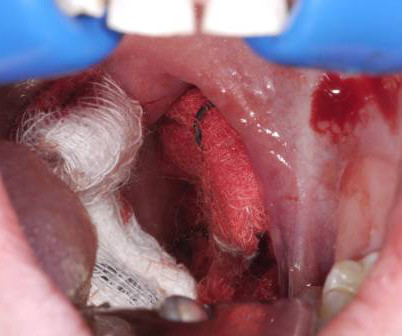
ACEP Now
JANUARY 5, 2025
Its 4 a.m., and youre three hours from the nearest tertiary care center. A young woman, 13 days post-tonsillectomy, comes into your rural emergency department (ED) coughing up blood. On exam, you see bright red blood trickling down her left tonsillar fossa. Her vital signs are normal, except for a heart rate of 115 bpm. Its going to take time to get her to a tertiary center.
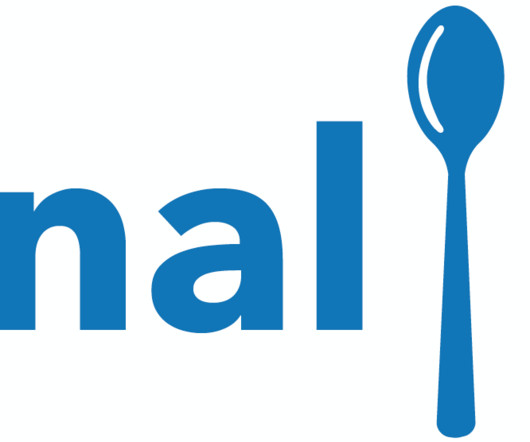
EMDocs
JANUARY 4, 2025
We always work hard, but we may not have time to read through a bunch of journals. Its time to learn smarter. Originally published at JournalFeed , a site that provides daily or weekly literature updates. Follow Dr. Clay Smith at @spoonfedEM , and sign up for email updates here. #1: PARAMEDIC-3 and IVIO RCTs IO vs IV Epinephrine for OHCA Spoon Feed Two large studies randomizing patients with out-of-hospital-cardiac arrest (OHCA) to either an intraosseous (IO) or intravenous (IV) first approach
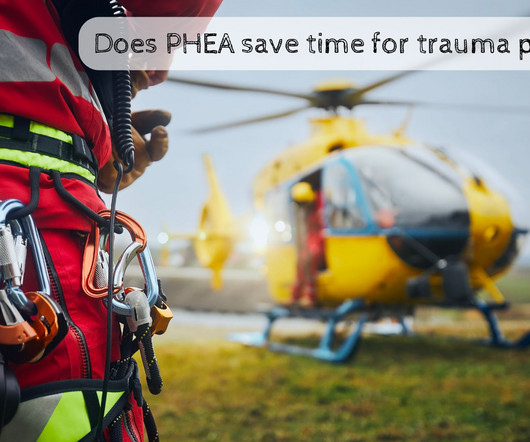
St. Emlyn
JANUARY 6, 2025
St.Emlyn's - Emergency Medicine #FOAMed How does pre-hospital emergency anaesthesia (PHEA) delivered by Helicopter Emergency Medical Services (HEMS) impacts trauma care timelines compared to emergency department RSI (EDRSI). The post Prehospital Emergency Anaesthesia (PHEA) vs. Emergency Department RSI: A Comparative Study on Trauma Care Timelines and Outcomes appeared first on St.Emlyn's.

PulmCCM
JANUARY 6, 2025
In the past decade, so-called “sepsis alerts” came out of nowhere to become a ubiquitous and resource-intensive component of inpatient medical care. The trouble is, no one checked first to see if they work. “Sepsis alerts” are automated notifications that flag patients who meet certain criteria compatible with severe infection discernible from the electronic medical record.

ALiEM
JANUARY 6, 2025
A 32 year-old male with PMH significant for opioid use disorder, a prior admission in 2021 for left-sided empyema s/p thoracotomy and decortication, gas bacteremia, and tricuspid endocarditis presented for a left leg wound. The patient reported a wound to his left leg that had become larger over the past 5 months. The pain worsened today, prompting him to come to the emergency department for evaluation.
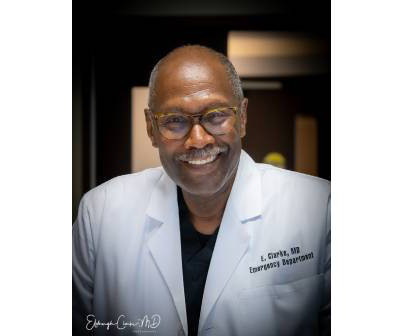
ACEP Now
JANUARY 4, 2025
Emergency medicine was approved as the 23rd medical specialty in 1979, shortly after a young Elsburgh Clarke, MD, discovered the burgeoning specialty. 1 Just one year prior, Dr. Clarke had begun an emergency medicine residency at what was then known as LA CountyUSC Hospital, Los Angeles. I was about two months into a family practice internship when I went to visit my uncle whose neighbor happened to be an ED resident, Dr.

NRC Health
JANUARY 8, 2025
The NRC Health 2025 Pediatric Collaborative is truly a cant-miss experience, with exceptional presentations that will stir innovative ideas. Check out a preview of one of the sessions! The post Peds Collab Preview | Join NRC Health experts for an interactive workshop appeared first on NRC Health.
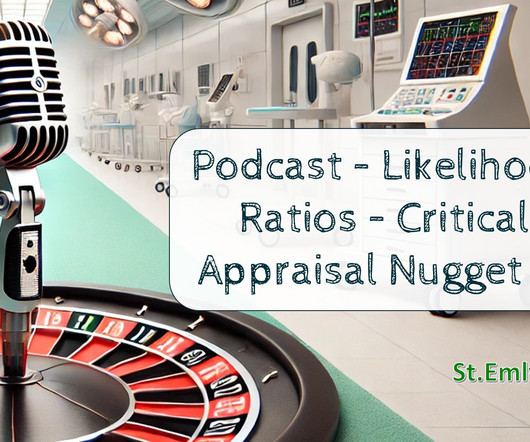
St. Emlyn
JANUARY 7, 2025
St.Emlyn's - Emergency Medicine #FOAMed Mastering likelihood ratios can transform your diagnostic skills. In this podcast with Rick and Greg, discover how likelihood ratios can enhance decision-making and improve patient care. The post Podcast – Likelihood Ratios: Critical Appraisal Nugget 12 appeared first on St.Emlyn's.

EMergucate
JANUARY 7, 2025
80 year old man presented with shortness of breath. This patient had history of CHF and COPD. His venous blood gases showed the following PH = 7.
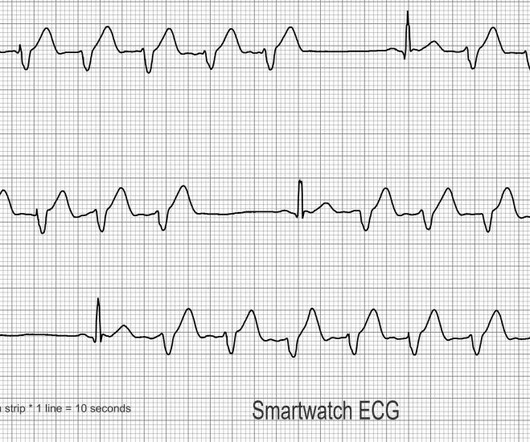
ECG Guru
JANUARY 3, 2025
Here we see a 30 s long strip of a 1-lead ECG rhythm strip, recorded with a modern Smartwatch (Apple watch). The ECG has been graphically processed for better visualization. The paper speed is 25 mm/s as usual. The lead shown corresponds to ECG lead I of the limb leads.
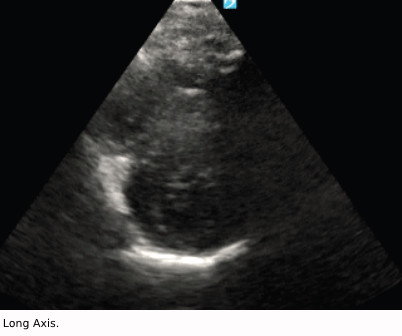
ACEP Now
JANUARY 2, 2025
Thanks to Drs. Harrell and Bower for their excellent case discussion in the October issue of ACEP Now. They made a final diagnosis of hypertrophic obstructive cardiomyopathy and discussed how that diagnosis was made despite the initial anchoring on the wrong diagnosis. They continued to work the patient when they noted that the main presenting signtachycardiapersisted after the treatment for the initially anchored diagnosis, anxiety and panic disorder, and, possibly, hypovolemia.

American Medical Compliance
JANUARY 8, 2025
Nursing homes should serve as sanctuaries of care, compassion, and safety for the elderly and vulnerable. Yet, abuse within these settings remains a pervasive and often hidden crisis, impacting countless individuals worldwide. Alarmingly, approximately 1 in 6 individuals aged 60 or older have experienced some form of abuse in community settings, including nursing homes, according to the World Health Organization (WHO).

JournalFeed
JANUARY 4, 2025
The JournalFeed podcast for the week of Dec 30 Jan 3, 2024. These are summaries from just 2 of the 5 articles we cover every week! For access to more, please visit JournalFeed.org for details about becoming a member. Tuesday Spoon Feed : Workplace violence (WPV) occurs in one out of every 3.7 shifts among healthcare workers (HCWs) in emergency departments, with nurses and younger HCWs being at higher risk.

Pediatric Education
JANUARY 5, 2025
Patient Presentation An 8-year-old male came to clinic with his parents because of uncontrolled asthma symptoms. They had moved into a rented home that was about 50 years old in August, when they moved to the area from another country. Since that time he had increased runny nose and coughing and used his albuterol only intermittently. He was coughing several times per day and his parents said he “coughed all night” but it didn’t wake up the patient.
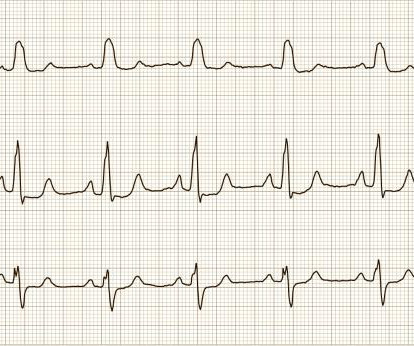
ECG Guru
JANUARY 3, 2025
This 3-lead ECG comes from an 80-year-old gentleman who went for a cardiological examination after a syncope. The ECG shows a sinus rhythm with wide QRS complexes, the QRS morphology in lead I suggests an LBBB, heart rate here just under 60 bpm. After 3 sinus node beats there is a pause of just under 2 seconds. There are no P waves during this pause.

ACEP Now
JANUARY 5, 2025
Every year, the hopeless task of keeping up with the medical literature grows even more unattainable. Will our Sisyphean burden be replaced with AI? ( Read this months Skeptics Guide to Emergency Medicine for that answer.) Will we be microchipped with peripheral PubMed brains? Will we finally wake up from the Matrix and be freed? Not yet! So, in the meantime, heres a host of articles of more than just passing interest from the past year, not already covered in ACEP Now.

NRC Health
JANUARY 7, 2025
Renown Health has selected NRC Health to enhance its network through human-centered healthcare solutions and next-generation, data-driven insights that deliver Human Understanding to its patients, employees, and the communities it serves. The post Renown Health selects NRC Health as partner to enhance patient experience and operational efficiency appeared first on NRC Health.
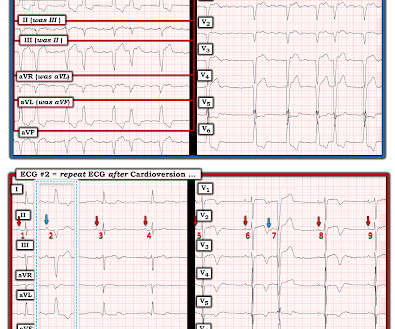
Ken Grauer, MD
JANUARY 2, 2025
I was sent the ECG shown in Figure-1 told only that this tracing was obtained prior to elective electric cardioversion of a patient who had long been in persistent AFlutter ( A trial F lutter ). Serum electrolytes were normal at the time of cardioversion. The patient tolerated cardioversion well and later that day was discharged from the hospital. ( The post-cardioversion tracing will be shown momentarily in Figure-3 ).

EMDocs
JANUARY 6, 2025
Authors: Paul Omagor, MD (EM Resident Physician, Makerere University, Uganda); Tracy Walczynski, MD (EM Attending Physician, SEED Global Health, Mbarara University of Science and Technology, Uganda ); Jessica Pelletier, DO, MHPE (APD, EM Attending Physician, University of Missouri-Columbia, USA) // Reviewed by: Marina Boushra, MD (EM-CCM Attending, Cleveland Clinic, USA); Alex Koyfman, MD (@EMHighAK); Brit Long, MD (@long_brit) Case A 16-year-old female with no remarkable past medical history is
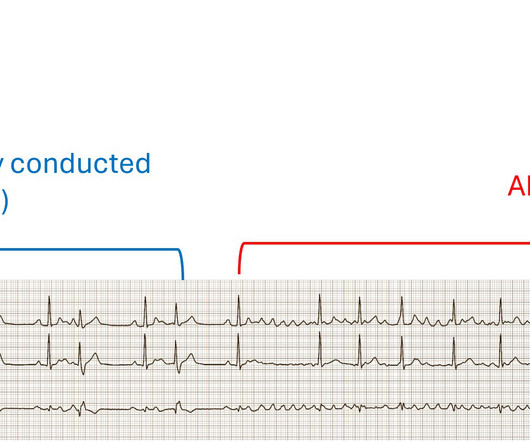
ECG Guru
JANUARY 3, 2025
Atrial fibrillation is a very common arrhythmia, affecting hundreds of millions of people worldwide. The diagnosis of atrial fibrillation is of great importance, as the timely initiation of oral anticoagulation can in many cases significantly reduce the risk of embolism (which is associated with this arrhythmia). The risk of cardiac embolism is particularly high in the presence of paroxysmal atrial fibrillation, in which there is frequent alternation between sinus rhythm and atrial fibrillation.
Let's personalize your content